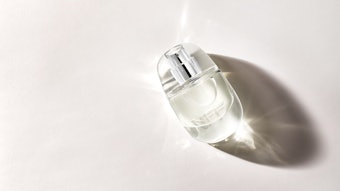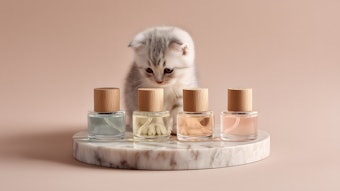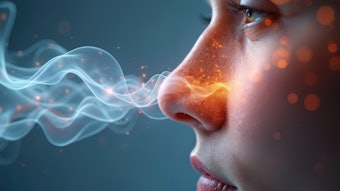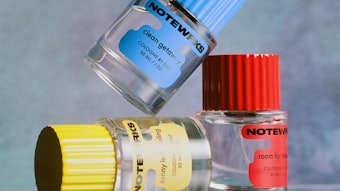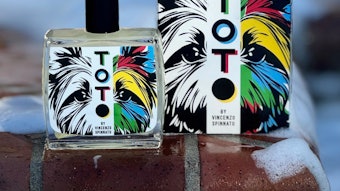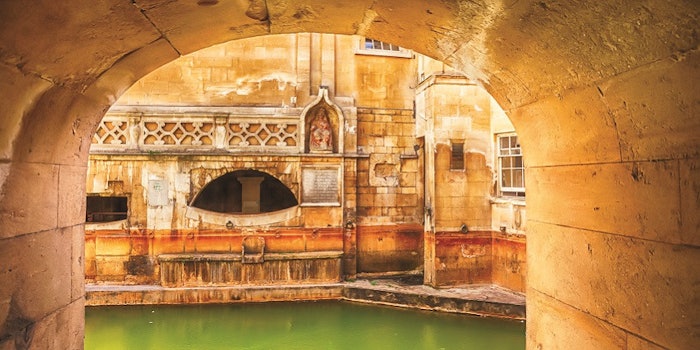
There is a ritual to bathing. From the cursory morning shower to luxuriating in a bubble-strewn bath, these rituals vary. A friend of mine adds three cups of milk and 10 drops of natural jasmine oil to each and every bath. Another, seeps in salts from her grandmother’s Turkish recipes—sea salt infused in rose Otto—the blend dotted with dried rose petals and a myriad of heady herbs and spices. My own bathing alters—at times I drop jasmine, rose and fossilized amber into the tub—though I have employed all sorts of aromatic magical elixirs for everything from relaxation to success in business. One of these demanded basil leaves seeped in honey and set under the light of a waxing moon for three days... along with an incantation written on paper, burned and then released as ashes out the bathroom window. Another called for drops of ylang ylang to invigorate the skin and add sensuality to one’s love life. Bathing rituals have long fascinated me. I grew up with a massive porcelain claw foot tub, leftover decor from the original owners of our 19th century house, in which my mother would set floaties on the bottom for me to sit on, lest the ever-growing bubbles overtake my tiny form. As a child, I insisted on a bath just after dinner every night, much to the chagrin of my older siblings who were meant to watch me. At that time, it was the attention I craved. Now, it is the luxuriating – the pure undeniable escapism that only submerging in water can provide.
The Scent of Russian Banya
I come from a tradition of baths. My great grandmother from Russia would not often mention the old country, yet would speak fondly of her memories of the Schvitz—steam baths for the Jewish population in Odessa in the mid 1800’s—and the traditional slathering of honey to “feed the skin.” The Russian baths of Brooklyn, known as banya, are only a few blocks from my home, and I have enjoyed many an hour at Brooklyn Banya on Coney Island Avenue, slathering honey in the steam room, sweating it off in the radiating heat sauna, which smells of baked brick and cedar wood, then washing and scrubbing in the oppressively hot, wet sauna, followed by the tepid pool cool down. The banya bathers sport woolen banya hats to ironically, keep their heads cool. They sweat, laugh, or even conduct business meetings, while an attendant vigorously flogs them with vennik – bunches of birch or oak branches; the sweet and sharp green scent of the leaves excellent for circulation. The steam room has eucalyptus oil by the vent, though often I sneak in a lavender and mint blend which rises with the steam in aromatic, billowing clouds of scent. The banya bathing ritual is matched only with the banya dining ritual, and my chai—a mix of teas poured over sweet cherry syrup—which is always waiting for me after my first round of bathing, along with a pitcher of compote: seasonal fruits stewed in honey water, and a steaming plate of potato pelmeni with caramelized onions. The heartier banya-goers have bottles of vodka on the table along with the house smoked fish; the aroma of it all mingling with steam, sweat, baking cedar and sharp notes of eucalyptus.
Ancient Slavic lore tells of the Bannik, the spirit of the banya, described as a very small old man with a white beard and claw-like hands who insists on the third partition of the bathhouse be left free for him to entertain all manner of demons and spirits. No Christian iconography was allowed in the banya, as it would offend the Bannik and his guests, who were of the pagan world. If disturbed, the Bannik, notoriously temperamental and insisting on proper behavior in his realm, may pour boiling water on the offenders, and in some case, suffocate them with coal smoke. The Bannik inspired great respect in Russian folklore and superstitions, and secured a history of banya goers leaving offerings of water, bread, soap and fir branches during each visit. A place of community, the banya would purify brides before their weddings, and herald in births of their children. The Bannik was known to tell fortunes as well, and traditionally women would line up naked in the bathhouse and await a touch on the back from the bannik. A soft touch foretold happiness, while a sharp touch of the bank’s claws meant ill fortune.



